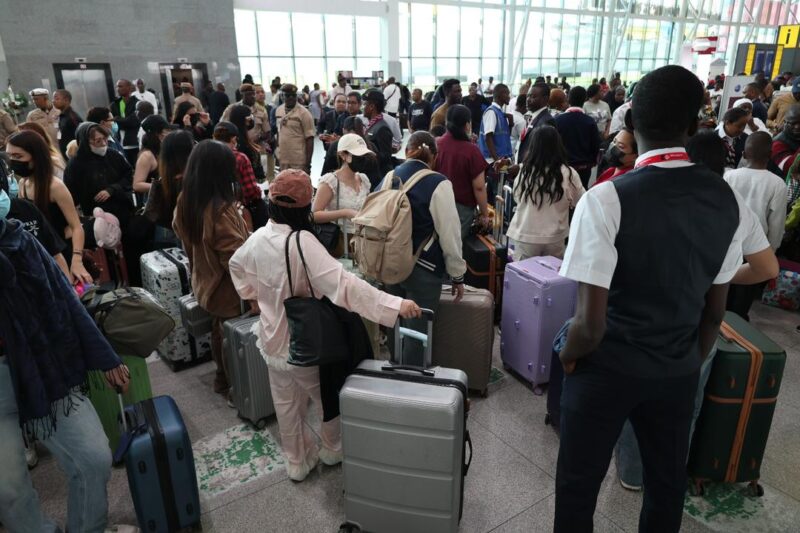The Economic and Financial Crimes Commission (EFCC), in collaboration with the Nigerian Immigration Service (NIS) and the Nigerian Correctional Service (NCoS), has deported the remaining 51 foreign nationals convicted and sentenced for various offenses including cyber-terrorism, internet fraud, and related financial crimes in Lagos.
This last of deportation brought the repatriation of the 192 foreigners involved in the crimes to a successful close.
The exercise followed the arrest and successful prosecution of 759 suspects during a major sting operation conducted by the EFCC on December 10, 2024, at Oyin Jolayemi Street, Victoria Island, Lagos.
SPONSOR AD
The exercise, which began on Friday, August 15, 2025, followed the conviction of the offenders by the Federal High Court in Lagos for offences bordering on cybercrime, money laundering, and ponzi scheme operations.
The first batch of 42 convicts comprising Chinese and Filipino nationals was deported on August 15, 2025.
Subsequent batches followed throughout August and September. The final batch of 51 convicts, including 50 Chinese nationals and one Tunisian, departed Nigeria on October 16, 2025, bringing the total number of repatriated foreigners to 192, a statement by the EFCC on Saturday disclosed.
The deported convicts include nationals of China, the Philippines, Tunisia, Malaysia, Pakistan, Kyrgyzstan, and Timor-Leste. They were deported in coordinated batches between August and mid-October 2025, in accordance with court directives and immigration procedures.
The EFCC statement posted on its X account indicated that all the deported convicts bagged their imprisonment when they were arrested with their Nigerian accomplices.
The accomplices were believed to be members of a sophisticated cybercrime and ponzi scheme syndicate operating under the cover of Genting International Co. Limited.
The operation, the EFCC stated based on credible, actionable intelligence, and subsequent investigations, confirmed that the convicted foreigners were involved in large-scale online fraud, identity theft, and cyber-enabled Ponzi schemes.
“Evidence revealed that they trained recruits and managed fraudulent digital platforms aimed at defrauding victims both locally and internationally. The Nigeria Immigration Service deported them as directed by the court,” the statement said.








